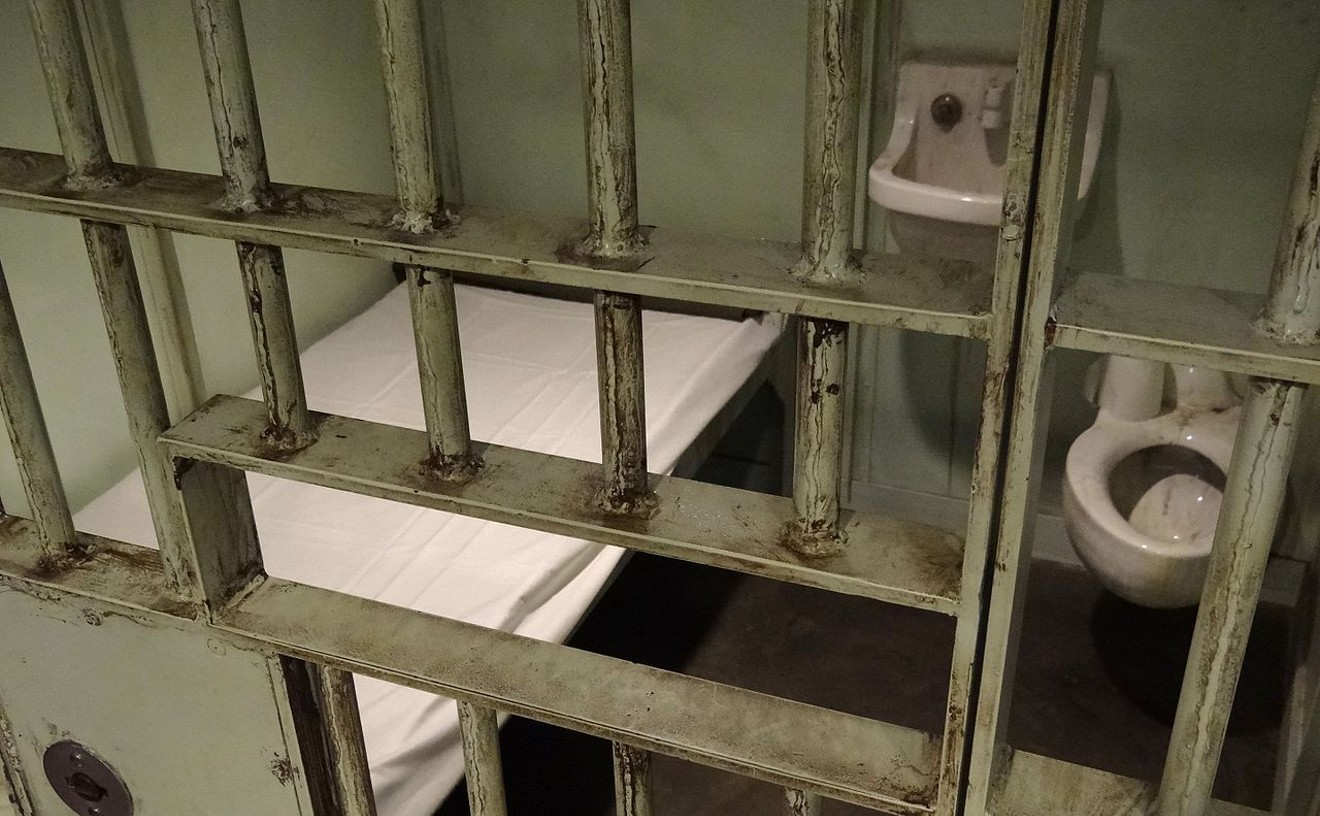Who’s a slumlord? What is a slumlord?
In the battle between a family of landlords and the mayor, the Khraish family, owners of HMK Ltd., have proposed a package of solutions that would keep poor renters in their homes and safeguard the surrounding community from further gentrification.
The only strategy proposed by Mayor Mike Rawlings would toss almost 300 Khraish tenant families out of their homes. In secretly taped remarks made during a private meeting, Rawlings said he was not bothered by the prospect of running off the 300 families who pay rents from $300 to $500 for their small houses in West Dallas.
Instead, Rawlings expressed enthusiasm for what he called “growth,” which he accurately and specifically described as the march of high-rent apartment complexes and condominium projects west along Singleton Boulevard from the Margaret Hunt Hill Bridge.
And yet somehow in the view of city’s only daily newspaper and on WFAA Channel 8 television, it’s the Khraishes who are consistently portrayed in the ancient Shylockian trope of slumlord — the greedy fiend grinding the poor between his talons — while Rawlings is portrayed as the strong blond knight on a white horse defending the poor.
All of the objective evidence is to the contrary. In the 13 years they have owned 350 homes in West Dallas and Southern Dallas, HMK Ltd has incurred 13 judgments for structural flaws, high weeds or litter at its properties - one per year. Put another way, if each of its houses had been the recipient of a single building code judgment per year, HMK would now have 4,550 violations on its record. Instead it has 13.
In the last year as part of a special mobilization against the Kraishes, the city hit them with $55,000 in fines for high weeds and litter. All $55,000 had to be refunded to them when the Khraishes showed the fines were bogus. The city hit the Khraishes personally, not their company, with 25 code violation citations. All 25 were thrown out by the courts.
The city filed five nuisance complaints against their properties, then dismissed four on its own and took one to court. The court threw that one out. The city's massive attempt to portray them as bad landlords has been a complete and abject failure.
And let’s pause here also to talk about secret recordings. Rawlings told The Dallas Morning News it was “sleazy” of the Khraishes to record him without his knowledge and then give the recording to me. So let’s take a look at that.
Khraish H. Khraish, the son in a father-son company, is a product of Greenhill School in Dallas with a degree in civil engineering from the University of Texas at Austin and three masters degrees from UT-Dallas, in accounting, business administration and finance. His father, Hanna Khraish, has done business in Lebanon, Abu Dhabi and London. In Dallas and Houston he has built high-rises as well as owning single-family rentals.
The elder Khraish, however, still has trouble following rapidly spoken English. His son told me he records important business meetings so that he can go back over them with his father later and answer his father’s exacting questions about what was said.
Even though Khraish possessed a tape of his meeting with Rawlings, he did not share the tape with the Observer for a half-year after telling us he had it. And, believe me, we asked.
Only when Khraish felt that no one at City Hall would ever listen to him, only when he saw the mayor on television saying the opposite of what he had said in the private meeting, only when the Khraishes were convinced that no one at the Morning News or Channel 8 would ever fairly reflect their position did they decide to give the tape to the Observer.
Why us? Who else? In my decades as a reporter in this town, I have witnessed a procession of people in this same position. It’s called shunning. It’s how hick towns operate, not real cities.
I believe this ugly aspect of our local culture is diminishing as more young people enter the fray armed with greater experience of diversity and with more basic human respect for their adversaries. But we’re not there yet.
And, yes, when people find themselves in this position, they do tend to find their way to the Dallas Observer. In that smooth cold wall of shunning and indifference, we are the door they can open.
Dallas Morning News City Editor Rudy Bush has accused me of taking the mayor’s recorded remarks out of context. Therefore I want to go over them again here carefully.
While publicly professing compassion for 300 families who stand to lose their homes in this fight and blaming the Khraishes for their plight, Mayor Rawlings was audio-recorded in that private meeting a year ago saying that what he really wants is for the Khraishes to sell their property and he doesn’t especially care if 300 renters get tossed out in the process.
First the mayor tells the Khraishes that growth is inevitable in West Dallas where the Khraishes own property. He identifies that growth as the march of multi-million dollar apartments and condo projects down Singleton Boulevard west from the Margaret Hunt Hill bridge.
“Now this is a very important area for us because growth’s comin’,” he says. He laughs. “Down Singleton and across Margaret Hunt Hill.”
The mayor dismisses an attempt by Khraish Khraish to discuss building code enforcement issues at their properties and instead states his concern with the street appearance of the houses, meaning their drive-by or curb appeal:
“ … let’s just keep this real simple. Somebody driving by and saying, ‘That is a very poor house.’”
Having stated his criterion for improvement – the drive-by appeal — the mayor goes on to say that the whole neighborhood needs to be improved:
“I think the whole neighborhood is not as good as it needs to be. So everybody has kind of got to raise their game.”
The mayor then goes into a series of questions probing the willingness of the Khraishes to sell their holdings, which the mayor frames in terms of increasing home ownership:
“If we put a program in place that allowed people to buy your homes and gave you a fair profit for it, not saying you would give these homes away, is that, would that be just, say, ‘No, we’re not interested in selling, we like this whole thing,’ or would you say, ‘Yeah, we would take some money off the table and let these people buy their homes?’ What’s your attitude about that?”
Khraish Khraish responds that he and his father have not received much interest from people who want to buy their houses. What is not said by Khraish is that few of the families paying him $500 a month and less in rent could qualify to buy a house, even through a nonprofit program.
But Khraish doesn’t have to say that. The mayor seems to know it already, although it takes him a minute to get to it. First, the mayor says: “OK, you know it’s funny. Everybody is worried about ‘Grow South’ [the mayor’s own improvement program] and gentrification. We’re going to drive poor people out of home ownership. I haven’t found any poor people that own anything. It’s you guys that own it.”
Then we get to the meat of the mayor’s view. But in re-listening to it, I have decided the mayor garbles his words a bit. In looking back at his previous statement — “... drive poor people out of home ownership” — I think he means to say in the next remark that he is not going to drive home ownership out. But instead it sounds to my ear like he says “up.”
“So the real issue,” Rawlings says, “is that we’re not going to drive home ownership up. We may drive rents out.”
At any rate, he is not concerned that he “may drive rents out.” Given his criterion for improvement, based mainly on the appearance of the neighborhood, and given his belief that home ownership will help accomplish that goal, “driving the rents out” is a cost he is willing to pay.
Please think about what that means, and I’m not asking you to get out your crying towel. But the mayor’s willingness to “drive rents out” is a willingness to drive renters out — poor families who will never be able to find homes in Dallas at rents that cheap.
That raises another question: How is it that the Khraishes, with a relatively excellent record on code violations, are oppressing the poor when they rent to them at the lowest prices in the city?
Let me give you my own definition of a slumlord. This will take a second:
A couple of weeks ago I told you about a trove of City Hall emails passed to me by an insider. The emails, between Assistant City Manager Ryan Evans and Economic Development Director Karl Kavitkovsky, reveal that thousands of affordable low-income housing units that should by law have been built within city-subsidized developments were never built. That staggering failure was on Evans’ watch.
Last week Evans made an unexpected announcement that he is retiring. On the same day, city officials told the City Council they intend to build 30,000 affordable units in the next five years — an absurd number, because it would cost $1.86 billion.
But let’s take that 30,000 number. I take that for the affordable units the city should have produced over the last 10 to 15 years. Now the city is lying to somebody — probably U.S. District Judge Sidney Fitzwater who has affordable housing litigation on his plate — saying that City Hall is going to crank out almost two billion dollars worth of affordable units in five years.
In a search for the real slumlord in this picture, I hope Judge Fitzwater will look closely at our mayor. He personally lobbied the federal government two years ago not to make Dallas build affordable housing. Think what 30,000 affordable housing units, if they were on the ground now, would mean for the thousands of families in southern Dallas who live in shabby houses that have no curb appeal.
Are those citizens not living in what the mayor calls a slum precisely because the mayor deprived them of the only shot they could ever have had at escaping the slums? I say the real slumlord is the guy who doesn’t mind tossing poor renters out on the street, never even thinks of providing them with alternative housing and in fact makes sure such housing can’t even be built inside the city.
The power of an ancient trope — Shylock and the white knight — is that people have great difficulty seeing outside it. That's all the more reason to try.
[
{
"name": "Air - MediumRectangle - Inline Content - Mobile Display Size",
"component": "18855504",
"insertPoint": "2",
"requiredCountToDisplay": "2"
},{
"name": "Editor Picks",
"component": "17105533",
"insertPoint": "4",
"requiredCountToDisplay": "1"
},{
"name": "Inline Links",
"component": "18349797",
"insertPoint": "8th",
"startingPoint": 8,
"requiredCountToDisplay": "7",
"maxInsertions": 25
},{
"name": "Air - MediumRectangle - Combo - Inline Content",
"component": "17105532",
"insertPoint": "8th",
"startingPoint": 8,
"requiredCountToDisplay": "7",
"maxInsertions": 25
},{
"name": "Inline Links",
"component": "18349797",
"insertPoint": "8th",
"startingPoint": 12,
"requiredCountToDisplay": "11",
"maxInsertions": 25
},{
"name": "Air - Leaderboard Tower - Combo - Inline Content",
"component": "17105535",
"insertPoint": "8th",
"startingPoint": 12,
"requiredCountToDisplay": "11",
"maxInsertions": 25
}
]











